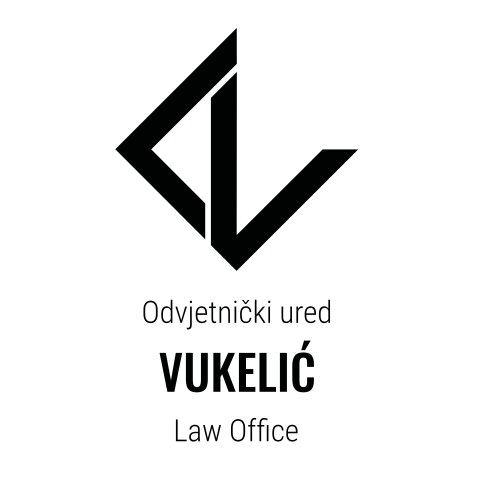Best Hiring & Firing Lawyers in Croatia
Share your needs with us, get contacted by law firms.
Free. Takes 2 min.
Or refine your search by selecting a city:
List of the best lawyers in Croatia
About Hiring & Firing Law in Croatia
In Croatia, employment law is primarily regulated by the Labour Act, which sets out the framework for employment relationships, including hiring and firing procedures. Employers must adhere to contractual obligations, collective agreements, and national regulations when managing employment processes. The legislation aims to balance the interests of both employers and employees, ensuring fair treatment and protecting workers' rights. In addition, EU labor directives have significantly influenced Croatian employment laws, promoting transparency and fairness across the employment spectrum.
Why You May Need a Lawyer
There are several situations in which an individual or business might need legal assistance concerning hiring and firing in Croatia:
- Understanding complexities of employment contracts and ensuring they are compliant with Croatian laws.
- Handling unfair dismissal cases or workplace disputes that require mediation or litigation.
- Navigating collective dismissal procedures or workforce restructuring following company reorganizations.
- Ensuring compliance with local labor regulations and avoiding potential fines or legal issues.
- Advising on employee rights, such as leave entitlements, discrimination issues, and occupational safety and health requirements.
- Drafting termination letters that are legally sound to avoid wrongful termination claims.
- Assisting with employment disputes resolution, whether through negotiation, arbitration, or court proceedings.
Local Laws Overview
Here are key aspects of the Hiring & Firing laws in Croatia:
- Employment Contracts: It is mandatory to have written employment contracts specifying conditions, rights, and obligations.
- Probationary Period: Typically lasts up to six months, during which either party can terminate the contract with a reduced notice period.
- Notice Periods: Vary based on the length of service, with a minimum of two weeks for less than one year of employment.
- Severance Pay: Mandatory for employees with at least two years of service, calculated based on years of service.
- Justified Dismissals: Include violations of duty, incompetence, or business reasons, but must follow legal procedures to avoid wrongful termination claims.
- Collective Redundancies: Require notifying and consulting with employees' representatives and governmental bodies.
- Alternative Dispute Resolutions: Encouraged as a first step in resolving employment disputes, through mediation or conciliation.
Frequently Asked Questions
What are the common grounds for termination of employment in Croatia?
Common grounds for termination include personal reasons, such as breach of duty or unsatisfactory performance, as well as economic, technical, or organizational reasons.
What is the procedure for terminating an employee in Croatia?
The employer must provide a written termination notice stating the reasons, adhere to notice periods, and pay any applicable severance. If applicable, a prior warning regarding performance issues is required.
Can an employee contest a termination decision?
Yes, an employee can contest a termination within 15 days from the date of receiving the termination notice, either through internal procedures or by filing a lawsuit.
What is the length of the probationary period in Croatia?
The probationary period can be up to six months, during which the employment can be terminated with a reduced notice period if specified in the employment contract.
What are the rules regarding severance pay in Croatia?
Employees with two or more years of service are entitled to severance pay, which is typically determined by the length of service, at a minimum of one-third of the monthly salary for each year of service.
Who can I contact for help if I'm facing discrimination at work?
Employees can reach out to the Croatian Ombudsman for Human Rights or relevant trade unions for support and guidance in such cases.
Are there any special protections for pregnant employees from dismissal?
Yes, dismissal of pregnant employees, as well as those on maternity leave or parental leave, is generally prohibited unless the employer can provide substantive reasons unrelated to the pregnancy or leave.
How should conflicts between employment contracts and collective bargaining agreements be handled?
Collective bargaining agreements typically take precedence over individual employment contracts if discrepancies arise, provided they offer more favorable conditions for the employees.
What steps should be taken when performing a collective dismissal?
Employers must consult with workers' representatives, notify and discuss the reasons with the Croatian Employment Service, and adhere to statutory notice periods before executing collective dismissals.
How can one enforce an employment judgment or settlement?
If an employment decision is not voluntarily enforced, claimants may need to initiate enforcement proceedings in court, adhering to the Croatian Civil Procedure Act guidelines.
Additional Resources
- Croatian Ministry of Labour, Pension System, Family and Social Policy
- Croatian Employment Service
- Croatian Employers' Association
- Croatian Union of Employers' Associations
- Croatian Union of Trade Unions
- Croatian Ombudsman for Human Rights
Next Steps
If you require legal assistance with hiring or firing matters in Croatia, consider taking these steps:
- Review your situation concerning the Croatian Labour Act and any applicable collective agreements.
- Consult with an employment lawyer who is experienced in Croatian labor law for tailored advice and representation.
- Gather documentation related to employment contracts, notices, communications, and any relevant records related to your case.
- Consider alternative dispute resolution methods to potentially resolve issues more amicably.
- Stay informed about your rights and obligations through trusted resources and by actively engaging with professional or union representatives.
Lawzana helps you find the best lawyers and law firms in Croatia through a curated and pre-screened list of qualified legal professionals. Our platform offers rankings and detailed profiles of attorneys and law firms, allowing you to compare based on practice areas, including Hiring & Firing, experience, and client feedback.
Each profile includes a description of the firm's areas of practice, client reviews, team members and partners, year of establishment, spoken languages, office locations, contact information, social media presence, and any published articles or resources. Most firms on our platform speak English and are experienced in both local and international legal matters.
Get a quote from top-rated law firms in Croatia — quickly, securely, and without unnecessary hassle.
Disclaimer:
The information provided on this page is for general informational purposes only and does not constitute legal advice. While we strive to ensure the accuracy and relevance of the content, legal information may change over time, and interpretations of the law can vary. You should always consult with a qualified legal professional for advice specific to your situation.
We disclaim all liability for actions taken or not taken based on the content of this page. If you believe any information is incorrect or outdated, please contact us, and we will review and update it where appropriate.
Browse hiring & firing law firms by city in Croatia
Refine your search by selecting a city.

















